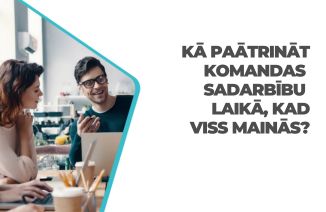Lai nodrošinātu vislabāko pieredzi, mēs izmantojam tādas tehnoloģijas kā sīkdatnes, lai saglabātu un/vai piekļūtu ierīces informācijai. Piekrišana šīm tehnoloģijām ļaus mums apstrādāt tādus datus kā pārlūkošanas uzvedība vai unikālo ID šajā vietnē. Nepiekrišana vai atsaukšana var nelabvēlīgi ietekmēt noteiktas funkcijas.
Tehniskā uzglabāšana vai piekļuve ir absolūti nepieciešama likumīgam mērķim, lai nodrošinātu abonenta vai lietotāja skaidri pieprasīta konkrēta pakalpojuma izmantošanu, vai tikai ar mērķi veikt saziņas pārraidi elektronisko sakaru tīklā.
Tehniskā uzglabāšana vai piekļuve ir nepieciešama likumīgam nolūkam, lai saglabātu preferences, kuras abonents vai lietotājs nav pieprasījis.
The technical storage or access that is used exclusively for statistical purposes.
Tehnisko uzglabāšanu vai piekļuvi, ko izmanto vienīgi anonīmiem statistikas nolūkiem. Bez pavēstes, interneta pakalpojumu sniedzēja brīvprātīgas atbilstības vai papildu ierakstiem no trešās personas informāciju, kas saglabāta vai izgūta tikai šim nolūkam, parasti nevar izmantot, lai jūs identificētu.
Tehniskā uzglabāšana vai piekļuve ir nepieciešama, lai izveidotu lietotāja profilus reklāmas sūtīšanai vai lai izsekotu lietotāju tīmekļa vietnē vai vairākās tīmekļa vietnēs līdzīgiem mārketinga mērķiem.
 Skatījumi
3814
11.06.2025
Mācīšanās
Skatījumi
3814
11.06.2025
Mācīšanās
